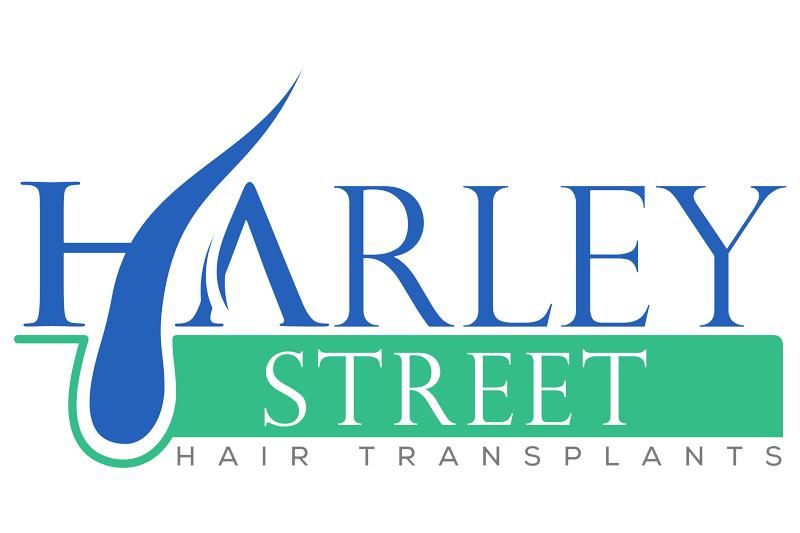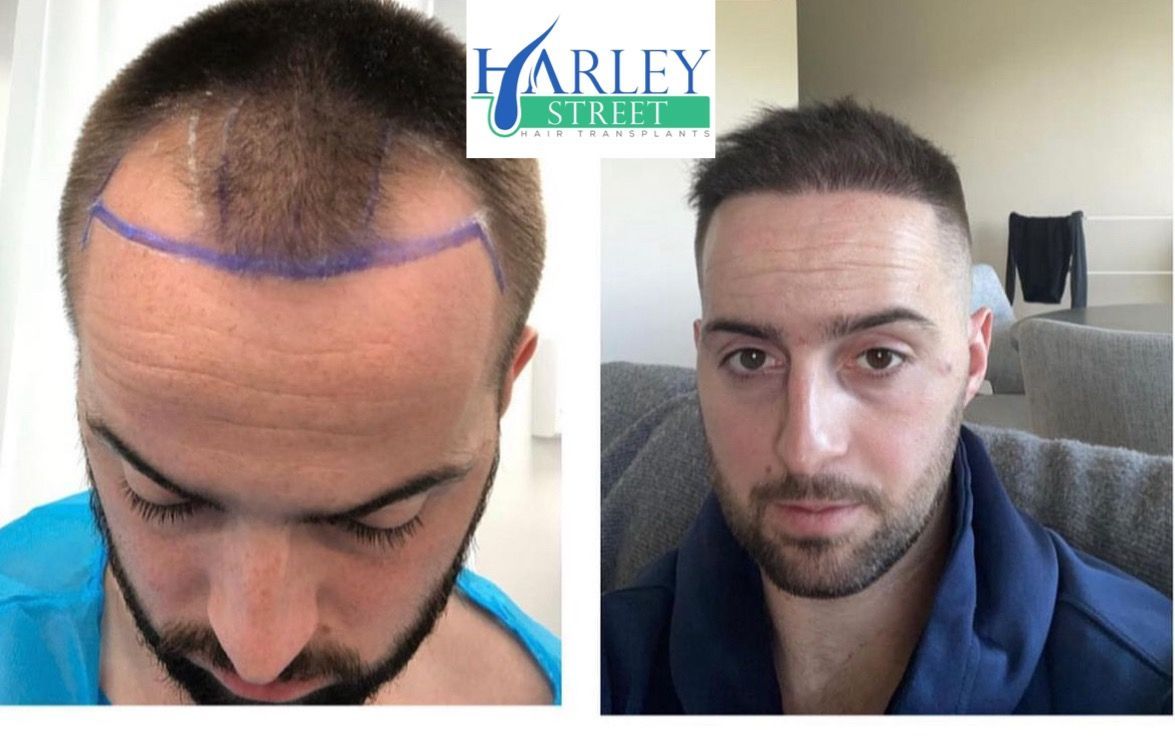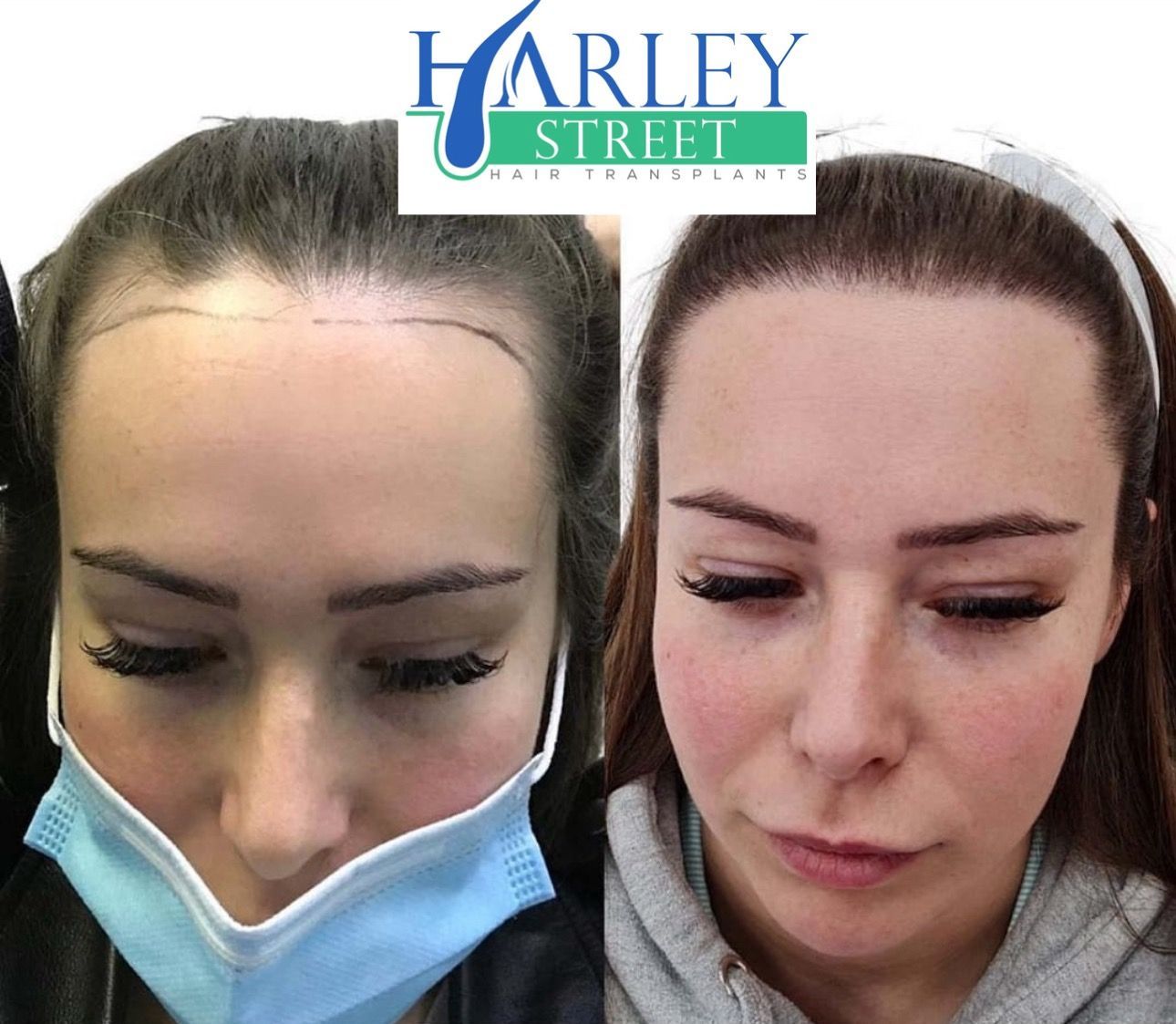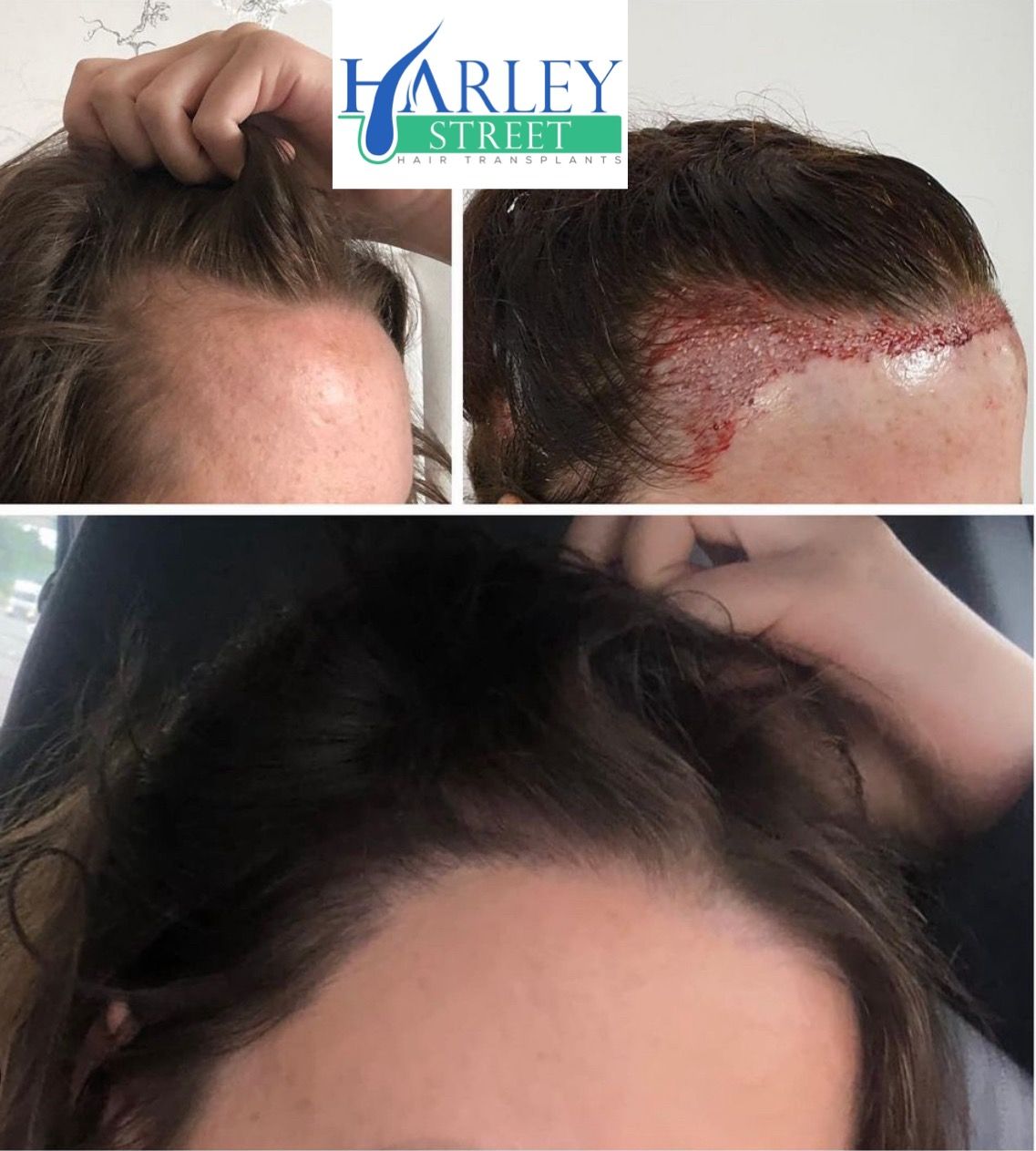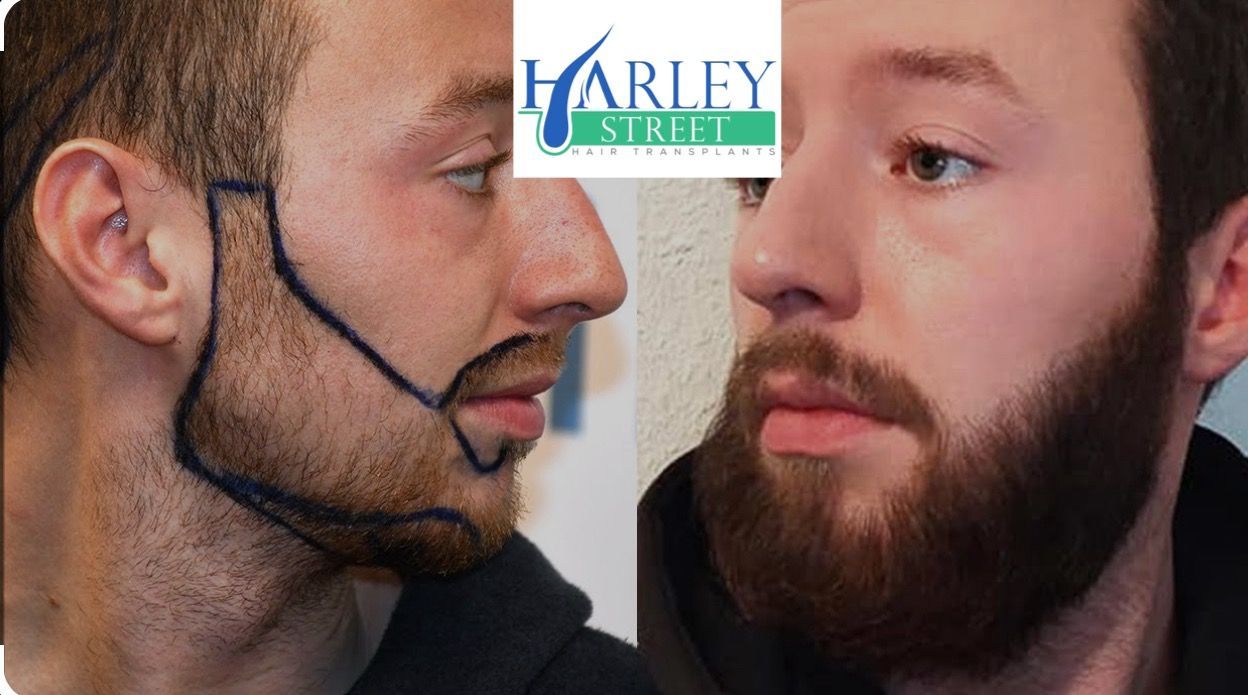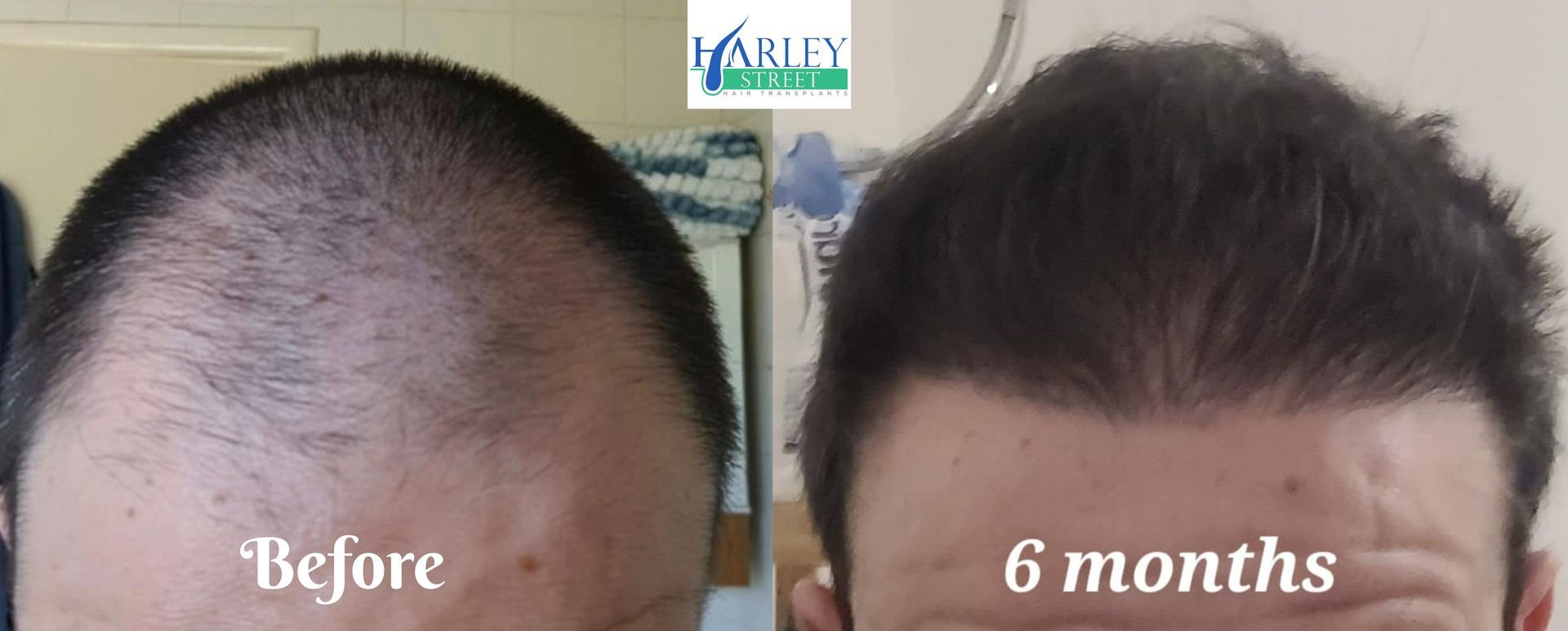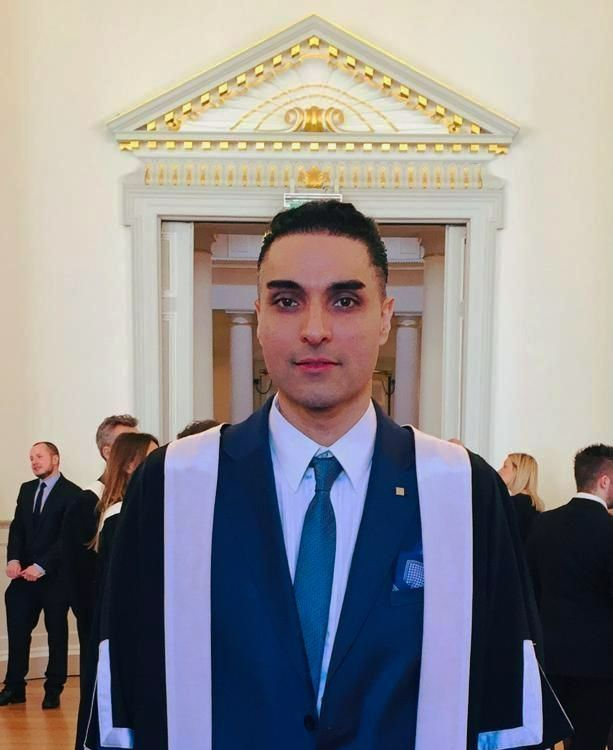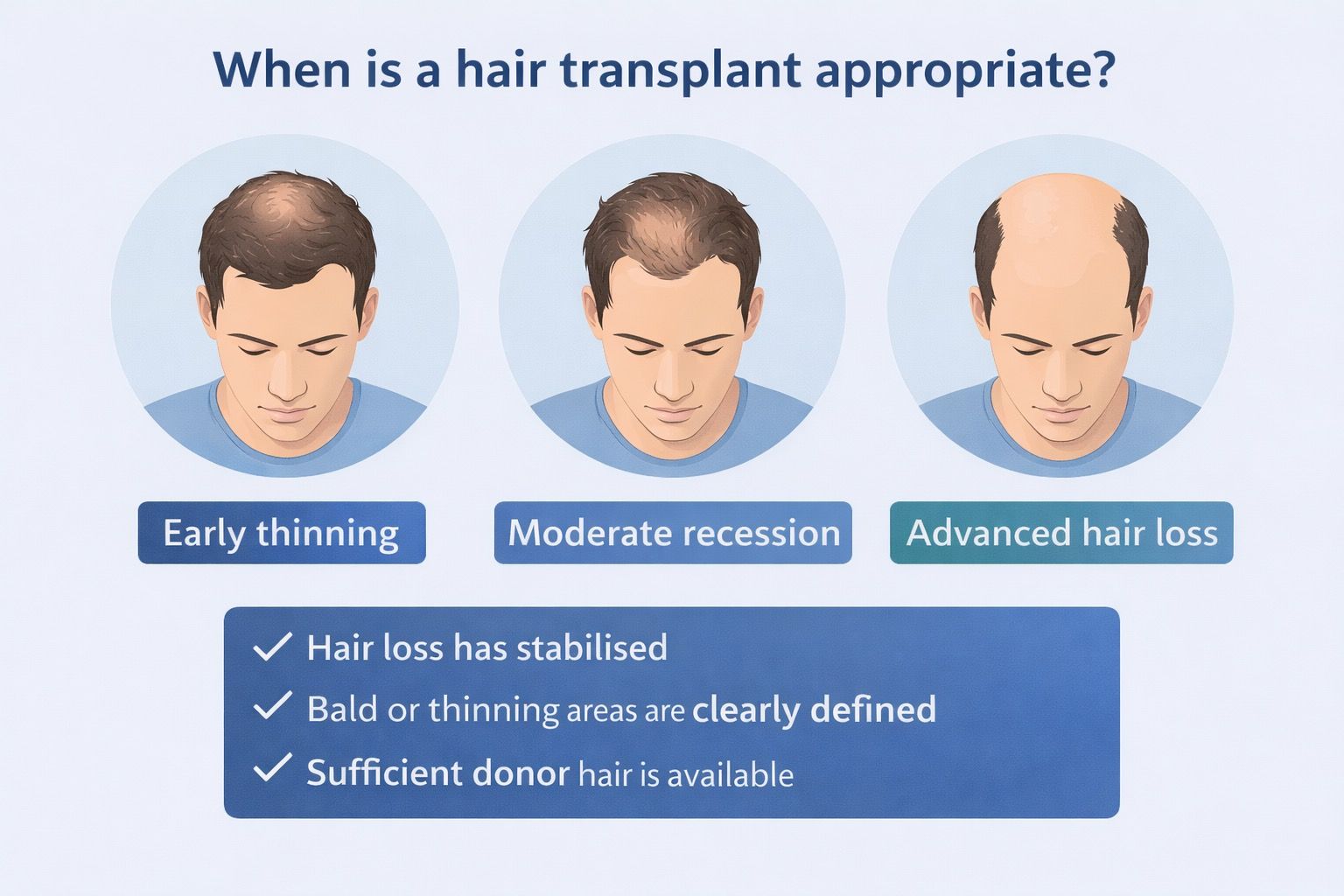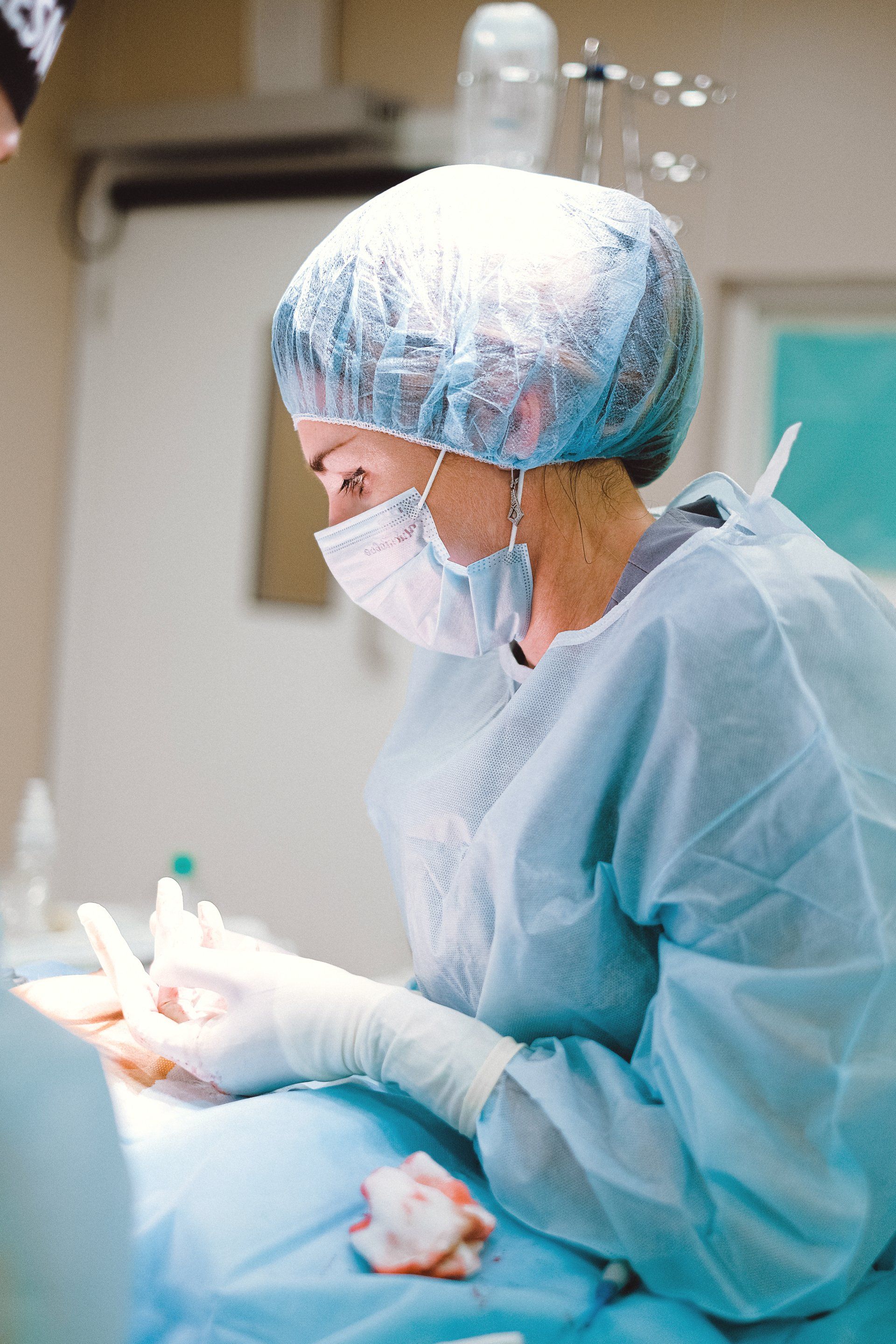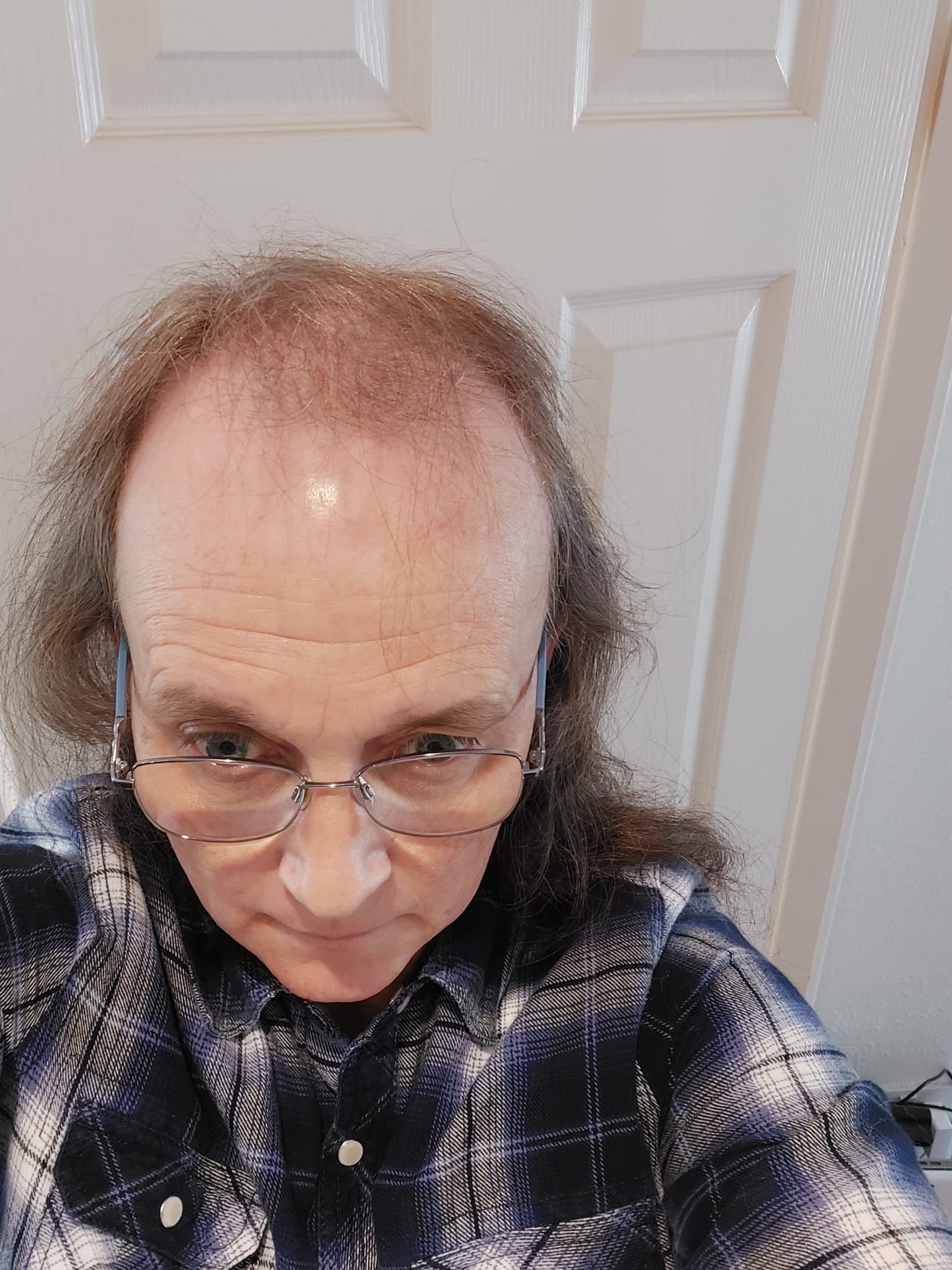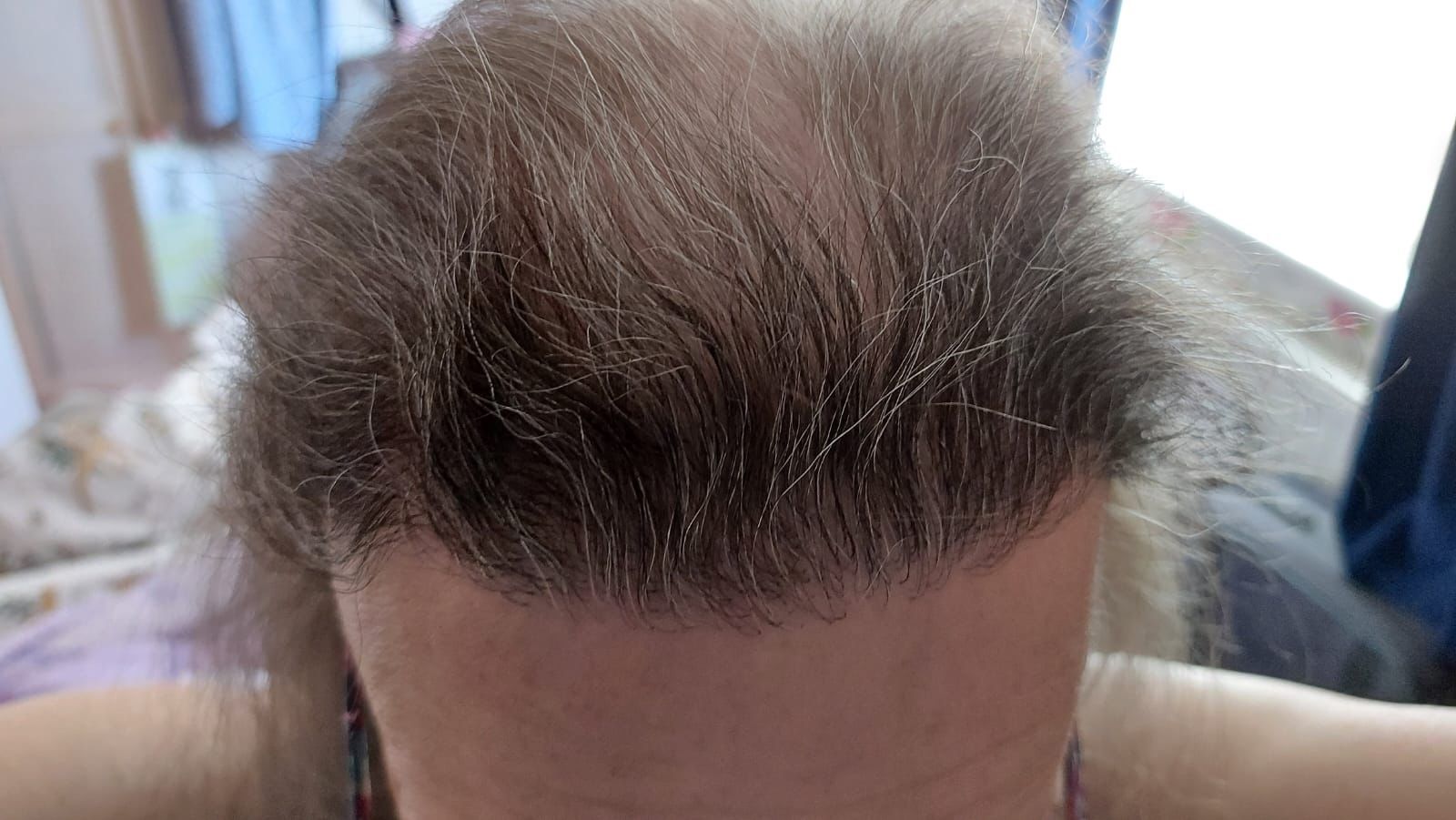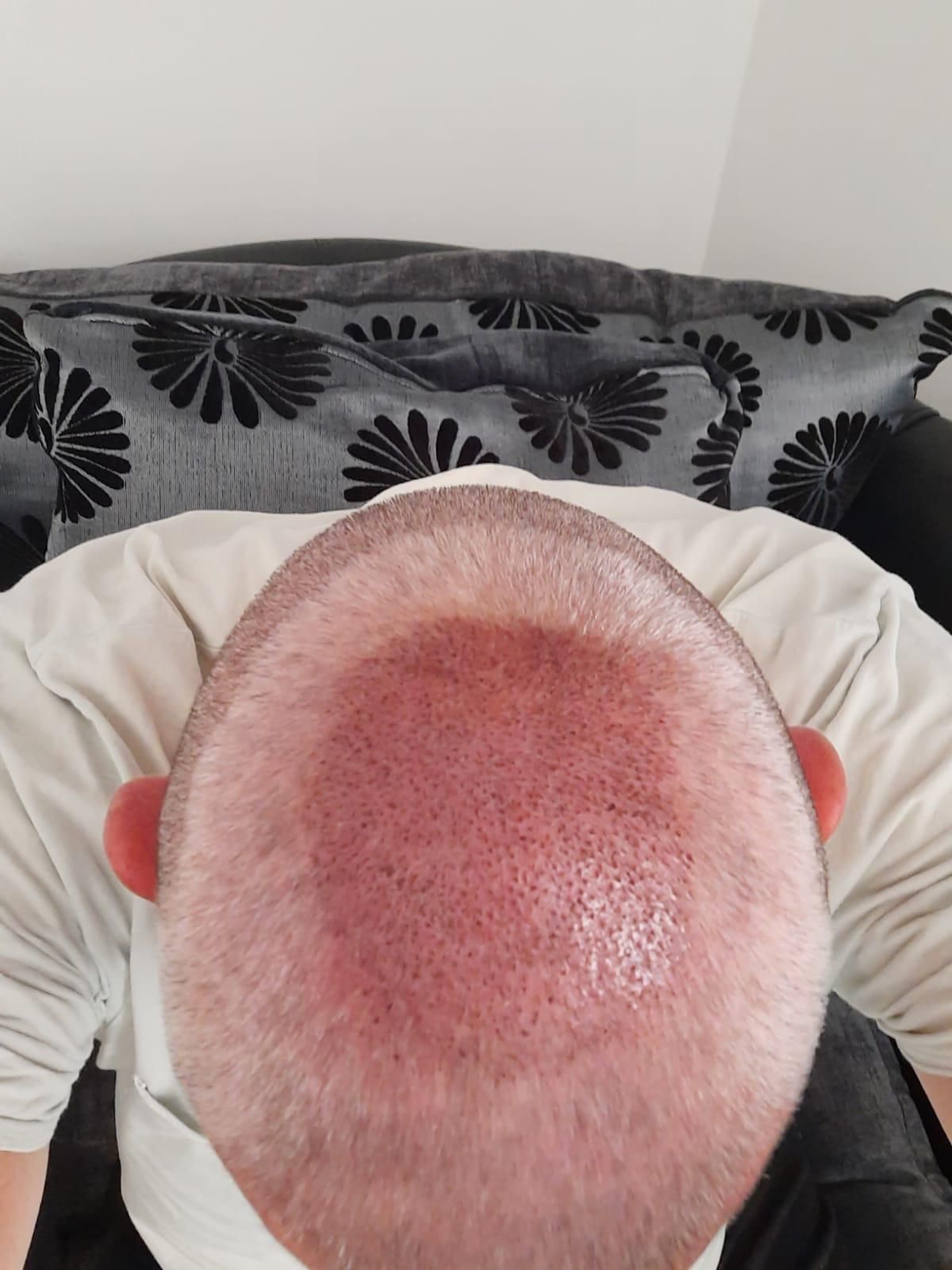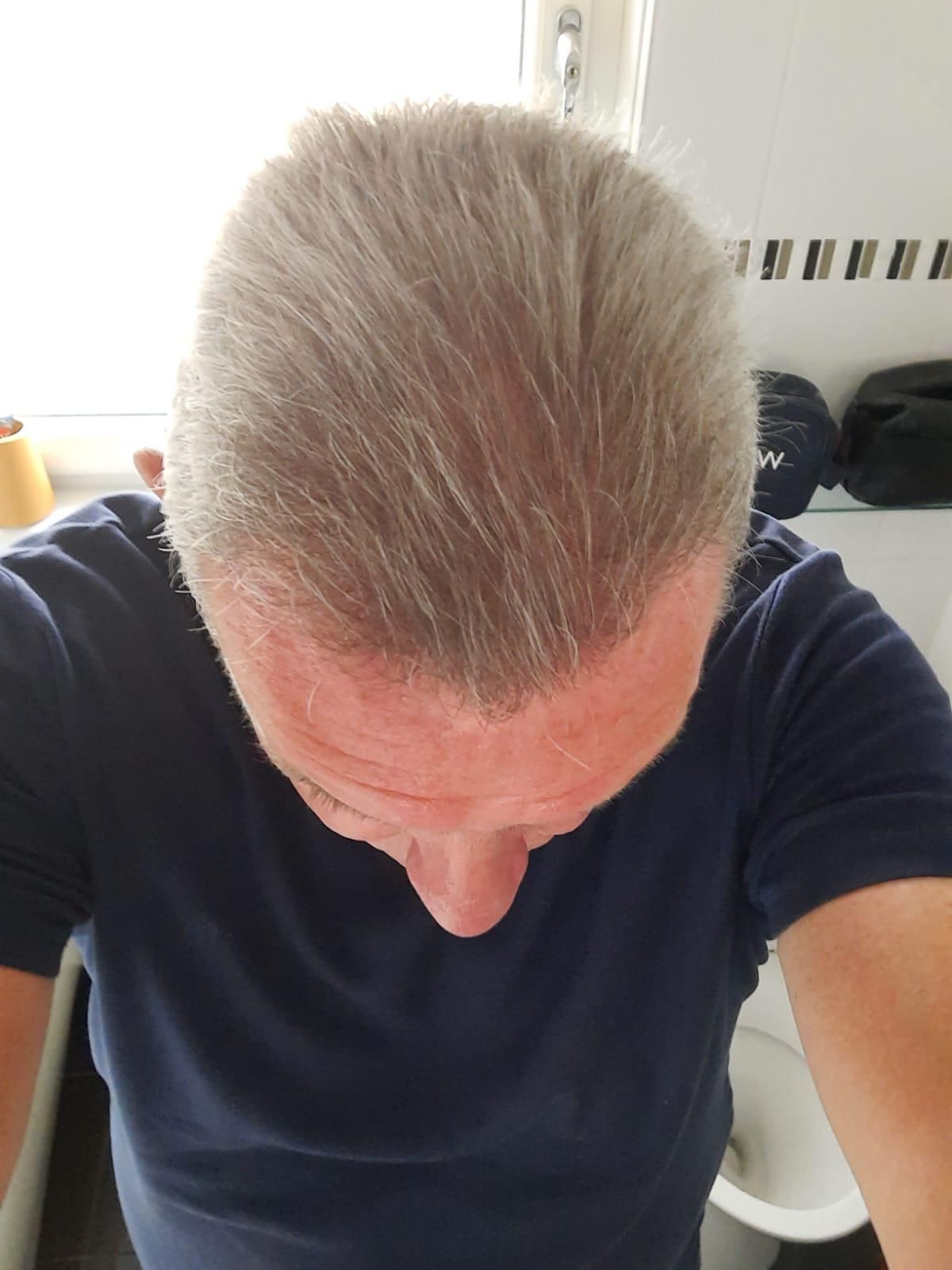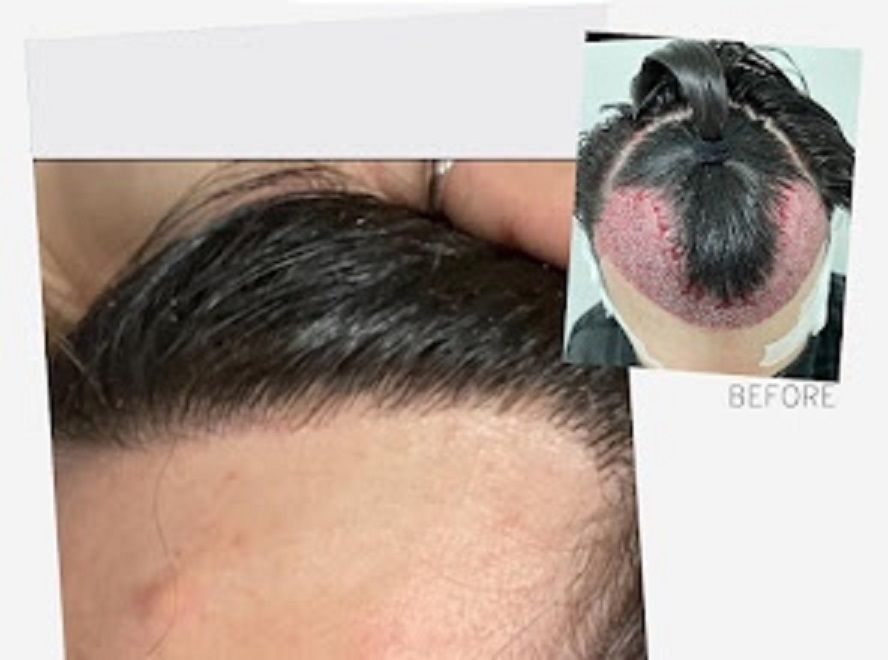Get in touch with us today
AS FEATURED ON
Our range of
Hair Loss Treatments
Patient Care Is Our Leading Priority

FUE is a minimally invasive procedure that does not require a large incision or stitches, resulting in minimal scarring and a faster recovery time.

FUT can be an effective hair restoration option for patients with larger areas of baldness or those who require a higher number of grafts.

Non Surgical Hair Loss Treatment
Our non-surgical hair restoration treatment makes use of the patient's own blood to promote hair growth.

Eyebrow hair transplants are a specialised hair restoration procedure that involves transplanting hair follicles from the scalp to the eyebrows.

Beard hair transplants are a specialized hair restoration procedure that involves transplanting hair follicles from the scalp or other areas of the body to the beard area.

Female hair transplants are a specialized hair restoration procedure that involves transplanting hair follicles to the areas of thinning or balding hair in women.
Relax…your Surgeon Knows Best
Unbeatable patient Care
From the initial consultation to the final post-operative follow-up, we are committed to providing unbeatable personalised care and support to help our patients achieve their hair restoration goals.
Free Consultations
Our free consultations are designed to be informative and educational, providing you with all the information you need to make an informed decision about your hair restoration options.
Surgeon Lead Approach
We take a surgeon-led approach to hair restoration. This means that our procedures are performed by highly experienced and skilled hair transplant surgeons who have years of experience in performing hair restoration procedures.
Hair Transplants Manchester
Welcome to Harley Street Hair Transplant Manchester. We are a leading hair transplant clinic providing state-of-the-art hair restoration solutions to individuals looking to improve their hairline and restore their confidence. With a team of highly skilled and experienced surgeons, we offer cutting-edge hair transplant techniques to help our patients achieve their desired results.
Our company was founded by a team of experts in the field of hair restoration, who recognised the need for a high-quality hair transplant service in Manchester. With a focus on delivering exceptional results and personalised care, our team at the Manchester clinic has quickly become one of the most trusted names in the industry.
Our state-of-the-art facility is equipped with the latest technology and equipment, enabling their team of skilled surgeons to provide a range of hair transplant techniques, including FUE, FUT & non surgical hair loss treatments. We also offer other hair restoration solutions, including DHI, Eyebrow Hair Transplants, beard hair transplants and hair transplants for male to female transitions.
At Harley Street Hair Transplant Manchester, our friendly team is committed to providing personalised care to every client. We understand that each person's hair loss journey is unique and all our staff work closely with our clients to develop a customised treatment plan that meets their individual needs and goals.
Whether you are experiencing hair loss due to genetics, age, or medical conditions, the team at Harley Street Hair Transplant Manchester is here to help. We make it our mission to provide an exceptional service, helping our clients to achieve the full head of hair they desire.
Manchester Hair Transplant Clinic
At Harley Street Hair Transplant Manchester, we are committed to providing our patients with the highest quality care and the latest advancements in hair restoration technology. That's why we invest in state-of-the-art clinic facilities to ensure the most comfortable and efficient experience possible.
Our modern clinic is equipped with the latest medical technology and equipment, including advanced microscopes and imaging systems for precise hair follicle extraction and placement. We also use cutting-edge sterilization methods to ensure a clean and safe environment for our patients.
In addition, our clinic features comfortable waiting areas and private consultation rooms to provide our patients with a relaxing and welcoming environment. We understand that undergoing a hair transplant can be an emotional and sensitive experience, so we do everything we can to make our patients feel at ease throughout the entire process.
At Harley Street Hair Transplant Manchester, we are dedicated to providing our patients with a world-class experience.
Contact us today to schedule a consultation and see our state-of-the-art facilities for yourself.
The Harley Street Manchester Team
At Harley Street, we are proud to have a Hair Transplant Manchester team that is highly skilled and experienced in hair restoration. We stand out from our competitors, because we work tirelessly to ensure every client is happy with their results and the service they receive. Our team goes above and beyond to provide exceptional care and support throughout the hair restoration process. We have helped countless individuals achieve a fuller head of hair and restore their confidence.
Our team is committed to staying up-to-date with the latest advancements in the field to ensure we provide the best possible service to our clients. We use the latest technology and equipment to provide cutting-edge hair restoration solutions that deliver exceptional results.
Meet Our Distinguished
Hair Transplant Surgeon
About Dr Kumari
Meet our Hair Transplant Clinic Manchester principal hair transplant surgeon, Dr. Joy Kumari (GMC No: 6106958).
The FUE/DHI Specialist Clinic is renowned for the best FUE/DHI hair Transplant in London. Our Clinic has developed the best FUE/DHI method extensively to provide very high-quality, comfortable, natural and reliable FUE/DHI results for men and women.
Our team is led by experienced FUE/DHI hair transplant surgeon Dr J Kumari. Dr J Kumari completed her postgraduate training in dermatology from Kings College, London, and worked in the NHS, specializing in general and aesthetic dermatology, before starting the Harley Street Hair Transplant Clinic.
She is highly experienced in Dermatology, as she has also completed her Masters in Dermatology (MSc) from the University of Hertfordshire UK.
Book Your
Free Consultation Today
Contact Us
Harley Street Hair Transplant Manchester
Latest News Posts
What is a Hair Transplant?
A hair transplant is a surgical procedure that involves removing hair follicles from a donor area on the scalp, typically the back or sides of the head, and transplanting them to a bald or thinning area on the scalp. The transplanted hair follicles are carefully placed into tiny incisions made in the recipient area of the scalp, where they can grow and thrive.
There are two primary techniques used in hair transplantation: Follicular Unit Transplantation (FUT) and Follicular Unit Extraction (FUE).
In FUT, a strip of skin is removed from the donor area and dissected into individual follicular units, which are then transplanted into the recipient area. In FUE, individual follicular units are harvested directly from the donor area using a specialized tool and then transplanted into the recipient area.
Both techniques require careful planning and precision to achieve natural-looking results. The procedure is typically performed under local anaesthesia, and patients may experience some discomfort during and after the procedure. However, most patients are able to resume normal activities within a few days of the procedure and can expect to see noticeable results within several months as the transplanted hair begins to grow.
How is male hair loss categorised
The Norwood Hamilton scale, also known as the Norwood scale or the Norwood-Hamilton classification, is a widely used system for classifying and assessing the progression of male pattern baldness. It was developed by Dr. James Hamilton and later modified by Dr. O'Tar Norwood.
The scale categorises male pattern baldness into seven stages, ranging from no significant hair loss (Stage 1) to extensive hair loss with only a narrow band of hair remaining at the sides and back of the head (Stage 7). A brief description of the stages is given below:
Stage 1: No significant hair loss. The hairline is relatively normal with no recession.
Stage 2: There is a slight recession of the hairline at the temples, forming an M-shape.
Stage 3: The hairline continues to recede further, forming a deeper M-shape or U-shape.
Stage 3 vertex: Hair loss at the crown or vertex area begins to appear.
Stage 4: The hairline recession progresses, and the balding area at the crown expands. The hair bridge between the front and crown areas becomes thinner.
Stage 5: The balding areas at the front and crown become larger, and the bridge of hair further thins out.
Stage 6: The balding areas at the front and crown merge, leaving a narrow band of hair at the sides and back of the head.
Stage 7: The most advanced stage with severe hair loss. Only a narrow horseshoe-shaped band of hair remains at the sides and back of the head.
The Norwood Hamilton scale provides a common reference point for both patients and medical professionals to communicate about the degree of hair loss and determine appropriate treatment options. It's important to note that the scale primarily focuses on male pattern baldness and may not be as applicable to female hair loss patterns, which can differ.
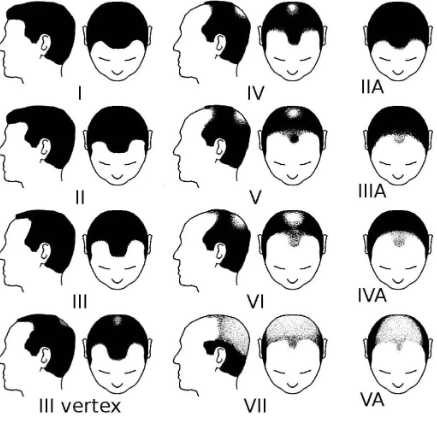
How is female hair loss categorised
The Ludwig scale, also known as the Ludwig classification, is a system used to assess and categorise female pattern hair loss. It was developed by Dr. Elise Ludwig and is commonly employed by medical professionals to describe the extent and severity of female hair loss.
The Ludwig scale consists of three stages or grades, which are as follows:
Grade I: In this stage, there is a noticeable thinning of the hair on the crown of the head. The central parting of the hair may become wider, and the scalp might become more visible.
Grade II: Hair loss progresses further, with increased thinning at the crown. The hairline remains relatively unaffected, and there may be a moderate reduction in overall hair volume.
Grade III: This stage is characterised by extensive hair loss at the crown, resulting in a prominent thinning or complete absence of hair in that area. The hairline may also recede, but it usually remains intact.
The Ludwig scale provides a standardized way to communicate the severity of female pattern hair loss. It assists medical professionals in diagnosing the condition, determining suitable treatment options, and monitoring the progression of hair loss over time.
It's important to note that female hair loss can have various underlying causes, and not all cases fit perfectly into the Ludwig scale. Other factors, such as hairline recession, diffuse thinning, or frontal hair loss, may require additional evaluation and classification. If you're experiencing hair loss as a woman, it is recommended to consult with your GP or a hair loss specialist for a proper diagnosis and personalised treatment plan.
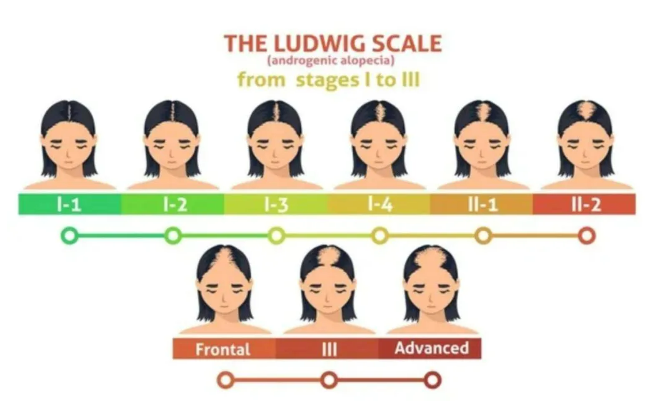
Check out a hair transplant procedure in action
What is non surgical hair loss treatment?
Non-surgical hair restoration treatment uses the patient's own blood to promote hair growth. During the treatment, a small amount of the patient's blood is drawn and processed in a centrifuge to concentrate the platelets.
Platelets contain a high concentration of growth factors that are important for tissue regeneration and healing. The concentrated platelets are then injected into the scalp at the areas of thinning or balding hair. These growth factors help to stimulate the hair follicles, promote hair growth, and improve the overall health and thickness of the hair.
Non surgical hair loss treatment is a safe and effective hair restoration option for both men and women who are experiencing hair thinning or early hair loss. It can also be used in combination with other hair restoration treatments, such as FUE hair transplant surgery, to enhance the results.
At Harley Street Hair Transplant Manchester, we offer non surgical hair loss treatments as part of our non-surgical hair restoration services. Our team of hair restoration experts will work with you to develop a personalized treatment plan that meets your unique hair restoration goals and needs.
Our Patients' Progress
Is a hair transplant permanent?
A hair transplant is considered a permanent solution to hair loss and this is why they are so popular. The reason a hair transplant is permanent is because hair follicles that are transplanted from the donor area to the recipient area of the scalp are genetically resistant to the hormone DHT, which is the primary cause of hair loss in men and women.
Once the transplanted hair follicles have been successfully implanted and begin to grow in their new location, they will continue to grow and behave like natural hair. This means that the transplanted hair is permanent and will not fall out like traditional hair loss.
It is important to note that while a hair transplant is a permanent solution, it does not prevent further hair loss from occurring in other areas of the scalp. Therefore, it is important to work with a hair restoration expert to develop a comprehensive treatment plan that addresses all areas of hair loss and helps to maintain the results of the hair transplant over time.
At our Hair Loss Clinic in Manchester, we do just that. Our expert surgeons work with you to establish an aftercare routine to make sure that your implanted grafts stay there forever!
What if I am not happy with the results of my hair transplant?
Our expert surgeons work with you to design a hair line that is bespoke to your needs. We work with precision and skill to ensure that your hair transplant provides exactly the results you are looking for. Our excellent standards have given us a great reputation amongst our Manchester patients and beyond.
In some rare cases, patients may not be completely satisfied with the results of their hair transplant. This can be due to a variety of factors such as inadequate hair coverage, an unnatural-looking hairline, or a lack of density in the transplanted area.
If you are not satisfied with the results of your hair transplant, it is important to speak with your hair restoration expert as soon as possible. They may be able to make adjustments or offer additional treatments to help improve the appearance of your hair.
In some cases, a touch-up procedure or additional hair transplant may be necessary to achieve the desired results. It is important to keep in mind that hair transplantation is a process and that it may take several sessions to achieve the desired level of coverage and density.
Before undergoing a hair transplant, it is important to work closely with your hair restoration expert to ensure that you have realistic expectations and that you are fully informed about the risks and benefits of the procedure. This can help minimize the risk of dissatisfaction with the results and ensure that you are happy with the outcome of the procedure.
ABOUT US
We take patient care seriously
Harley Street Hair Transplant Manchester is a leading CQC registered hair transplant clinic located in Manchester, UK. Our team of highly skilled hair transplant surgeons specialise in providing natural looking hair restoration treatments to patients suffering from hair loss. We offer a range of hair transplant procedures, including FUE, FUT, eyebrow and beard hair transplants, as well as non-surgical hair restoration treatments. We are committed to providing our patients with exceptional care and personalised treatment plans that are tailored to their individual needs. With our surgeon-led approach, unbeatable patient care, and advanced hair restoration techniques, we strive to help our patients achieve natural-looking and long-lasting results. Contact us today to schedule a free consultation and take the first step towards regaining your confidence with a fuller head of hair.
WHY SO MANY CLIENTS CHOOSE HARLEY STREET MANCHESTER

GMC
Registered Surgeons

CQC
Registered Clinic

FREE
Consultations
LEADING
Hair Loss Solutions
The Hair Transplant Process - How It Works
1. Initial Enquiry
Reach out to us by phone, via our website, through our Google Profile, or through our social media pages. Don't by shy, all our staff are trained to deliver outstanding client service in a sensitive manner.
2. Free Consultation
If you meet the treatment requirements, we will schedule a video or face to face consultation where we can assess your specific requirements including the donor areas. All our consultations are free of charge & no sales pressure!
3. Treatment Options
Once your consultation is complete, we will present your specific treatment options that are best suited to your needs. We will also provide an accurate cost estimate at this stage, with no hidden fees.
4. Book your procedure
Once you are happy we will schedule a date for your procedure that suits your diary. We will aim to book your procedure at the earliest available opportunity, to avoid lengthy wait times
5. Deliver Results
All that's left to do now is to carry out your procedure. Our surgeons will work with precision and skill, whilst taking th time to cater to your needs. We promise to deliver results that you will love!
Take control of your
Hair Loss...
Hair loss can be a frustrating and emotional experience for many individuals. Taking control of your hair loss can help you feel more confident and comfortable in your appearance. We advise you to:
- Seek professional medical assistance
- Maintain a healthy diet and lifestyle
- Practice good hair care habits
- Manage your stress levels
- Consider surgical treatment such as FUE

Hair Loss - what are the facts?
At Harley Street Hair Transplant Manchester, we recognise the impact that hair loss can have on individuals, regardless of gender. Male pattern baldness, also known as androgenetic alopecia, affects a significant proportion of men, with approximately 30% experiencing this condition by the age of 30, rising to 80% by the age of 80. However, hair loss is not just limited to men, with research suggesting that around 50% of women in Britain may experience thinning or loss of hair by the age of 50.
What Causes Hair Loss?
We know hair loss can be frustrating. If you are experiencing hair loss, then it is inevitable that you have asked yourself the question what causes hair loss? The reality is that hair loss loss can be caused by a variety of factors, including the following:
- Genetics: Male and female pattern baldness is a genetic condition that can be passed down through families. It is the most common cause of hair loss and affects millions of people worldwide.
- Hormonal changes: Hormonal changes can also cause hair loss. This can occur during menopause, pregnancy, or due to hormonal imbalances such as thyroid disorders.
- Medical conditions: Certain medical conditions such as alopecia areata, scalp infections, and trichotillomania can cause hair loss.
- Medications: Some medications can cause hair loss as a side effect, including chemotherapy drugs, blood thinners, and some antidepressants.
- Stress: Emotional or physical stress can cause hair loss. This is known as telogen effluvium and usually occurs several months after a stressful event.
- Nutritional deficiencies: A lack of certain vitamins and minerals, such as iron or vitamin D, can contribute to hair loss.
- Hairstyles and treatments: Certain hairstyles and hair treatments, such as tight braids, weaves, and chemical treatments, can damage the hair and lead to hair loss.
Understanding the cause of your hair loss is important in determining the most appropriate treatment plan. At Harley Street Hair Transplant Manchester, our team of hair restoration experts will work with you to determine the underlying cause of your hair loss and develop a personalised treatment plan to help restore your hair and confidence.
What to expect from a hair transplant procedure with us
Searching for a
MANCHESTER HAIR TRANSPLANT CLINIC?
At Harley Street Hair Transplant Manchester, we are proud to serve local patients in the Manchester area. Our clinic is conveniently located in the heart of Manchester, making it easy for patients to access our services.
Find us on Google Maps at:
St James Tower, Charlotte St, Manchester M1 4DZ
Whether you are travelling by bus, car or train, our clinic is easily accessible from the following routes:
- MetroLink: Piccadilly Gardens
- Train: Manchester Piccadilly Station
- Bus: Piccadilly Gardens Bus Station
Our Patients' Progress
How much does a hair transplant in Manchester Cost?
The cost of a hair transplant in Manchester can vary depending on a number of factors, such as the extent of your hair loss, the number of grafts required, and the hair restoration technique used. At Harley Street Hair Transplant Manchester, we offer free consultations to all prospective patients, during which we will assess your hair loss and provide you with a personalised treatment plan that includes an estimate of the cost.
In general, the average cost of a 2500 graft FUE hair transplant is £4000. Smaller procedures involving 1000 grafts can start from £3000. While outright cost is certainly an important consideration when deciding on a hair transplant clinic, it is also important to prioritise the quality, patient experience and expertise of the clinic and hair restoration team. This will help to ensure that you get value for money from your hair transplant. At Harley Street Hair Transplant Manchester, we consider ourselves to offer the highest value for money of all the other hair transplant clinics in the Manchester area. If you are interested in learning more about the cost of a hair transplant in Manchester and our personalized treatment options, please contact us to schedule a free consultation.
How much does non surgical hair loss treatment cost in Manchester?
At our Manchester clinic, non surgical hair loss treatment is one of the most sought after and value for money services we offer. We carry this out at a rate of £380 per session and 3 sessions for just £995!
Popular Questions
Got a question for our Manchester hair transplant team? We’re here to help.
